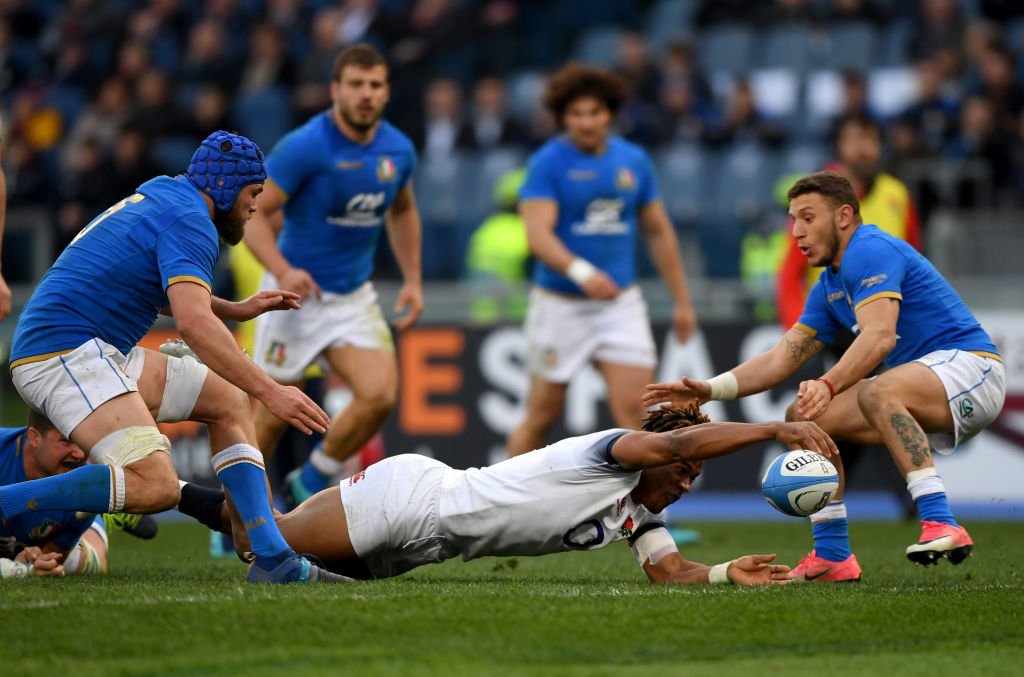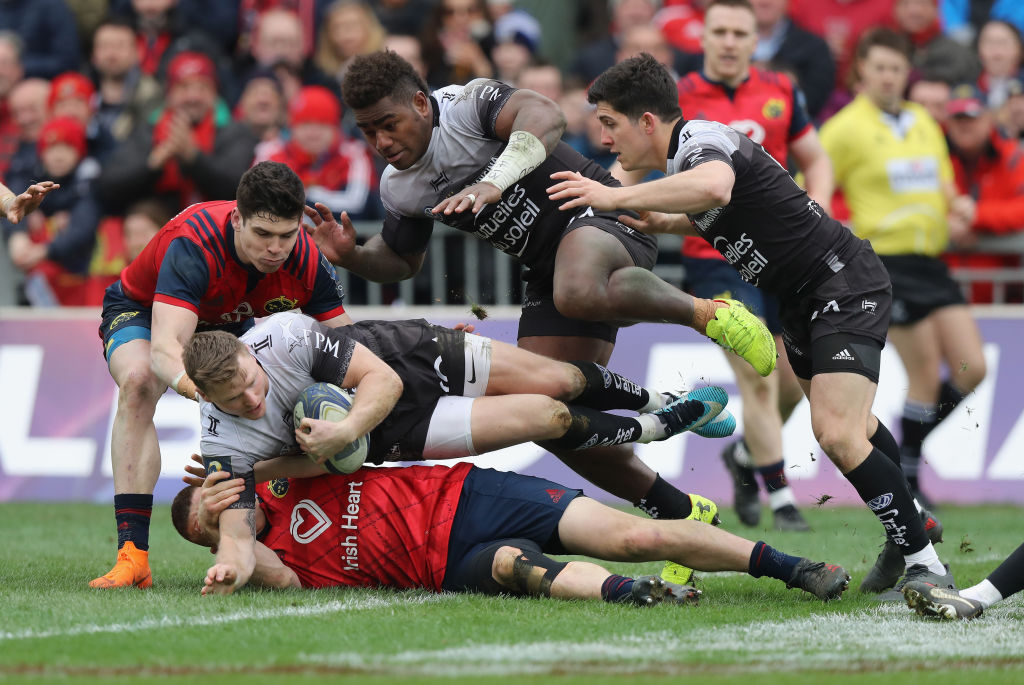By Jeremy Guscott
Chris Ashton is a proven try-scorer, whether at Northampton, Saracens or Toulon, where last season he set a Top 14 record with 24 tries. Ashton is one of those players who is capable of scoring from anywhere, and that is why Sale signed him.
He is the king poacher, but more than that he can read the game in a way that very few players can. It is Ashton's ability to read running lines that is exceptional, and it doesn't matter whether he is picking a direct line to pierce the defence himself, or whether he gets on the shoulder of another attacker who has broken through, he gets in the right position to score tries where others don't.
Ashton has clearly returned from France to put himself in the frame for England selection ahead of the 2019 World Cup – and if he continues to show that sort of finishing ability for Sale in the Premiership this season then there is no reason why Eddie Jones would ignore him.
A combination of Ashton and Denny Solomona in the Sale back three is pretty potent, and the great thing about their new signing is that it won't be a question of getting the ball to the wings before you see him. All the Sale forwards will need to do is to get the ball to the backs because Ashton will pick the time and place where he can make the biggest attacking inroads.
With Faf de Klerk returning to Sale this season I'm sure Ashton will not take long to feed off the South African scrum-half. He will soon work out how De Klerk plays, and as soon as the puzzle fits together both of them will benefit.
Early on in his England career Ashton made the mistake of calling for the ball too often when he was heavily marked. You only have to do something like that a couple of times at that level before people start asking questions about you being ready.
After the World Cup in 2011 Ashton managed to keep his place when Stuart Lancaster took over, but after the tour to New Zealand in 2014 he found himself out of favour with new wings like Jack Nowell, Anthony Watson and Jonny May coming through.

The other issue was that Ashton's decision-making in defence came under scrutiny, and after Lancaster dropped him following the 3-0 series defeat to the All Blacks he remained out of favour, missing out on the 2015 World Cup.
Despite scoring 19 tries in 39 England internationals and maintaining a high strike rate with Saracens he remained out in the cold when Eddie Jones took over, and after finding himself on the outside his decision to go to France and join Toulon last season was understandable. Now he has come back to England he should do so with a clean slate, and he will arrive full of confidence because of the remarkable success he had with Toulon, who were reluctant to lose him.
Ashton will bring a refreshing outlook because of the way he plays, and any young back at Sale training alongside him will benefit from observing how he manages to get into the right places at the right time.
When Danny Cipriani arrived back at Wasps last season he put his hand up to say, ‘I'm fit, healthy, playing well, and influencing a backline tactically and skill-wise', and it earned him an England recall this summer. Ashton's aim will be to do the same at Sale.
Ashton has come back because of his desire to play for England again, and also for family reasons. To make the most of the opportunity he will want to instil in his new club the attitude he learned at Saracens, where the 80 percent win record he enjoyed during his time with the club included winning away on a frequent basis.
I'm not surprised he did so well at Toulon, because playing alongside other internationals he was always going to be a success. When you have the ability to sniff out tries that he does it means you automatically have that sense of how to get on the same wavelength as other players.
If you made a comparison with football he is a bit like Alan Shearer, with that ability to read his team-mates an important part of making him such a potent goal-scorer, and it is the same with the way Ashton gets the ball down over the line.
His biggest challenge will be to match the defensive stats of the wings in the England squad at the moment, and to use the anticipation that makes him so good in attack to make him similarly effective in defence.

My prediction is that Ashton won't play for England at full-back – which is where he played most of the time for Toulon – but will be viewed as an out-and-out wing. There is definitely an opportunity there for him, especially if Watson ends up playing 15 again.
That ability to make tracking runs is in Ashton's DNA, and it is very difficult to coach. He understands time, how to make the most of space, and the importance of when to give or take a pass.
Although he very rarely over-runs the ball when he plays full-back he does occasionally do so when he is on the wing. Getting too flat because you do not entirely back your pace is a common fault with wings – and in his case it's surprising.
There are not many international wings who have the pace of Rieko Ioane or Jonny May, and Ashton is not as quick as he was when he scored that spectacular end-to-end try against Australia in 2010 in his third Test. However, he is still pretty quick, and because he reads the game so well, and cuts such good lines, he's a lethal finisher.
Ashton's move shows that the pull of international rugby is still very strong, and although salaries in the Top 14 are high there will probably be more earning opportunities overall for him here, if he plays for England again.
The difference is probably in off-field earnings through sponsorship endorsements and personal appearances, which for an English player would not be the same in France – unless you speak the language and are Jonny Wilkinson.
Whether Ashton is recalled by England is all dependent on how well he plays for Sale. If he makes a strong impression, then, with his reputation, pedigree and past performances, if he was picked in the Autumn no-one could argue that he did not deserve it.



























